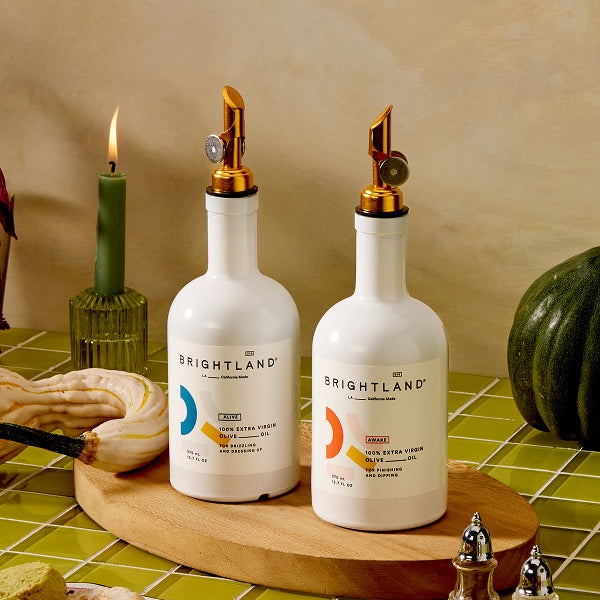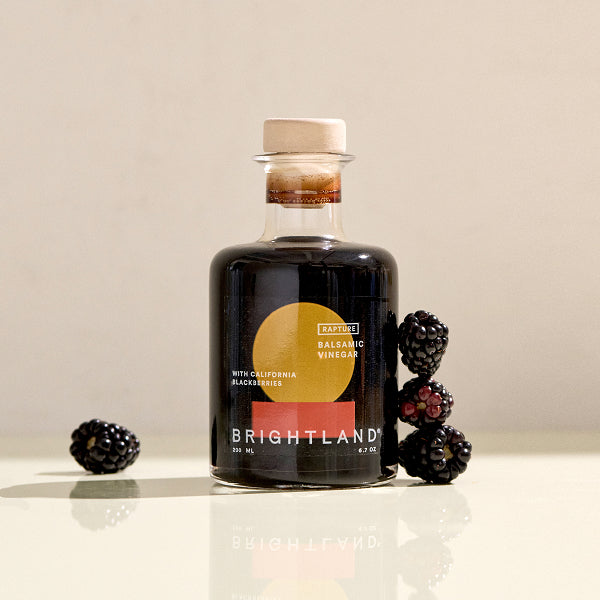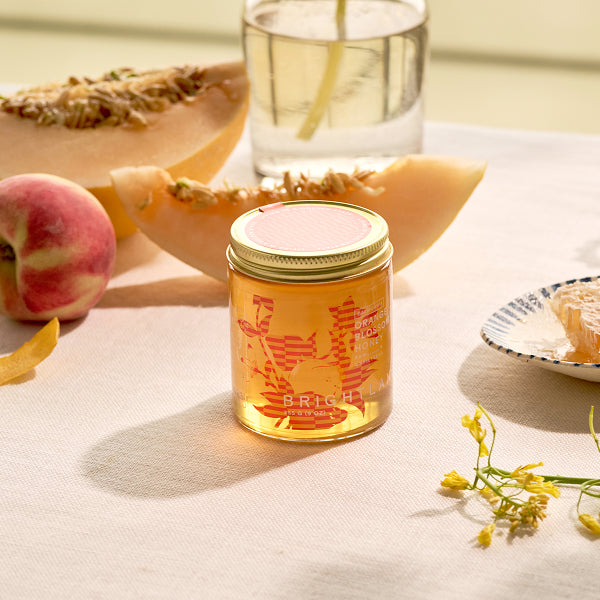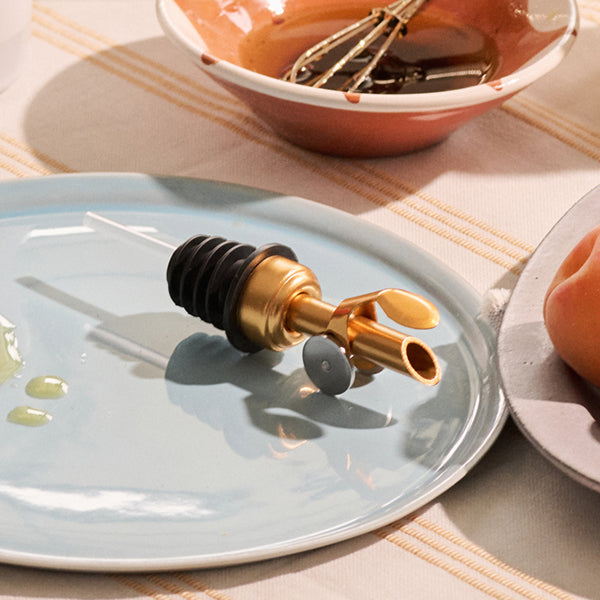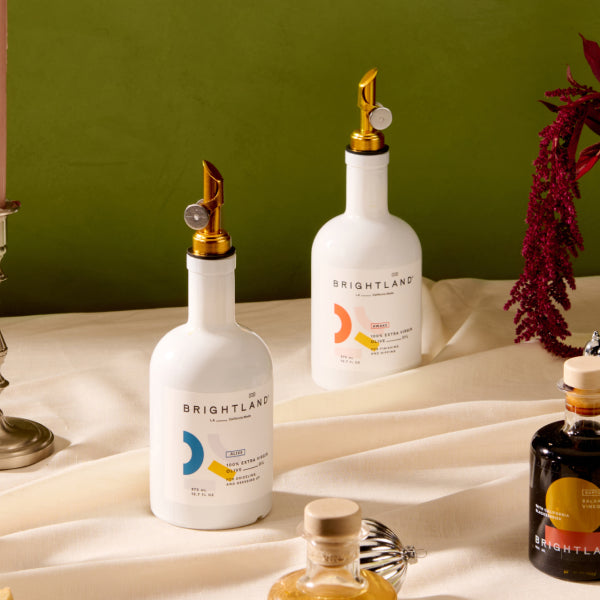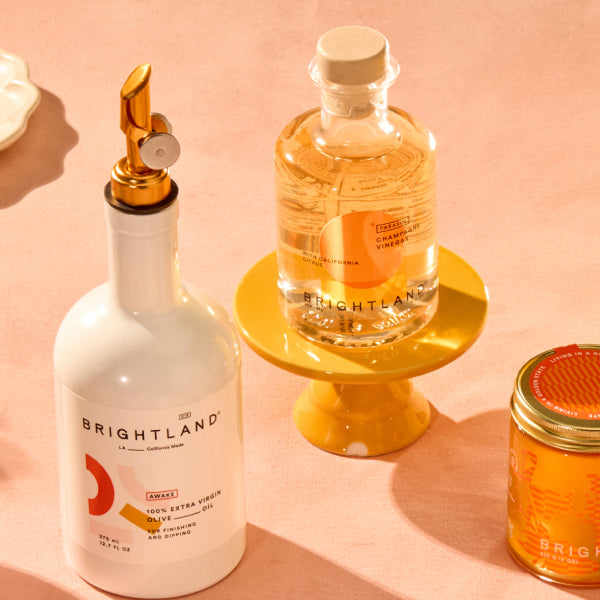People who observe veganism follow a completely plant-based diet and do not eat any animal products or byproducts. When you first start exploring veganism, you may be surprised how many foods are derived from animals. As a result, you may be wondering: Is olive oil vegan? Here is what you need to know about consuming healthy olive oil while on a vegan diet:[close type="rte"] [open type="rte"]
Is Olive Oil Vegan?
The short answer is yes, olive oil is vegan! Olive oil is a completely plant-derived product that is made entirely from the fruit of the olive tree. The product does not require animals for sourcing or processing in any way. Olive oil is an excellent vegan substitute for other oils and fats that are derived from animals, namely butter. Olive oil also contains several different types of healthy fats as well as antioxidants, which help promote heart health, relieve inflammation and more. If you are looking to incorporate more plant products into your life, olive oil is a healthy and versatile ingredient that you can easily use in many different cooking and baking recipes.
While concerns about animal cruelty and maltreatment are often behind decisions to go vegan or vegetarian, sometimes these motivations also incorporate environmentalism, as the industrial meat and dairy industry is extremely hard on the earth and a major contributor to climate change. In addition to choosing plant-based products such as olive oil, you can further mitigate the environmental impact by purchasing from a domestic smaller batch producer such as Brightland. International, industrial food production for all kinds of items — including olive oil — can have a significant negative impact on the environment due to the large scale of operations. Smaller companies can more tightly oversee production and make sure that our growing and harvesting practices are not taking an undue toll on the earth.
[close type ="rte"] [open type="images" count="1"]
Other Tips for Vegan Cooking
If you are new to eating and cooking vegan, here are a couple of tips that can help you ease into it:
-
Try other plant-based alternatives: If you are really attached to certain animal products such as meat and dairy, consider exploring vegan alternatives such as oat milk, nutritional yeast and meatless “chick’n” tenders. Keep in mind that some of these alternatives are full of just as many chemicals and additives as their animal-based counterparts, so be sure to read the ingredients carefully before purchasing.
-
Embrace new tastes: If you try to make your tofu taste like steak, you are going to be disappointed no matter what. Instead of always trying to recreate the taste and texture of animal-based products, embrace the new possibilities of a plant-based diet. Then, you will be able to make meals that fully take advantage of the potential of these new ingredients.
-
Explore new cuisines: American cuisine is heavily based on meat and dairy products (just think of staples such as burgers and pizza). As a result, sticking to this narrow category of recipes will really limit your cooking repertoire. Instead, explore cuisines that incorporate more plant-based ingredients, such as Mediterranean and South Indian cooking.
-
Keep track of what you like: As you start your new vegan eating journey, take notes on what flavors and combinations you like and which you do not. Over time, you will develop an understanding of what you like and dislike, which will make it easier than ever to select recipes.

If you are looking to add extra flavor to your dishes, vegan or otherwise, then exploring flavored olive oils such as lemon olive oil and red chili olive oil will add a great twist to tofus, salads and more. Check out our flavored and unflavored olive oils to find the perfect one for your needs.
Shop Healthy Olive Oil [close type="rte"]
